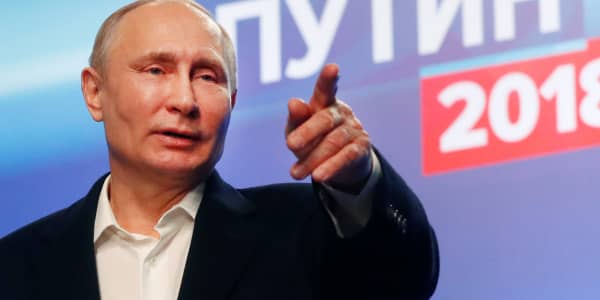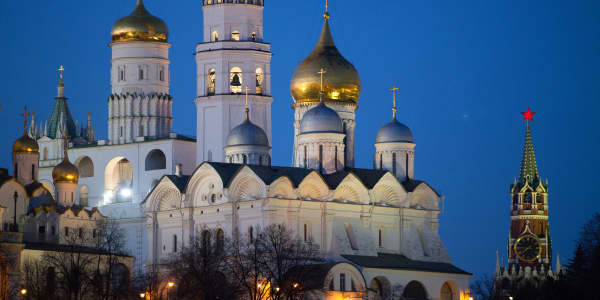
Russian President Vladimir Putin is heading to Greece on Friday as part of a charm offensive that experts say is aimed at gathering allies ahead of upcoming sanctions votes – and dividing Europe.
The Russian leader is set to meet Greek Prime Minister Alexis Tsipras and Greek President Prokopis Pavlopoulos during a two-day trip the Kremlin says will likely deliver "a number of bilateral agreements" and will focus on trade, investment and joint energy and transport projects.
In an article penned by Putin for Greek newspaper Kathimerini ahead of his visit, the Russian leader bemoaned Western sanctions for restricting ties between the two countries. These sanctions were imposed in 2014 after Russia's incursion in eastern Ukraine and Crimea. European Union (EU) leaders will vote on whether to extend them in July.
"These days, Greece is Russia's important partner in Europe," Putin wrote in the article published on Thursday.
"Unfortunately, the decline in relations between Russia and the European Union stands in the way of a further strengthening of our cooperation, with an adverse effect on the dynamics of bilateral trade that fell by a third to $2.75 billion as compared to last year," he said. He added that Greek farmers took a substantial hit from the decline in trade.
Greece is still struggling in the wake of the euro zone debt crisis of 2010 onwards and just this week, Athens agreed to further austerity measures and reforms in exchange for another loan tranche from international creditors worth $11.4 billion.
Experts suggest Putin is looking for allies among EU member states who could help lift or at least ease sanctions in coming months. Greece and Russia share some historic and cultural ties, with the Orthodox Christianity the majority religion in both countries.
"The extreme political and economic disruption Greece has experienced, in combination with existing cultural ties, make it a particularly attractive target for these kind of initiatives," Daragh McDowell, a principal analyst for Europe and Central Asia at Verisk Maplecroft, told CNBC.
"Fundamentally these overtures are about sowing division and discord among the EU states in order to undermine the sanctions regime and, over the longer term, the EU as a whole," McDowell added.
On Thursday, Marek Belka, the governor of the National Bank of Poland, told CNBC that disunity in the EU "plays into the hands" of Putin.
Consensus between all 28 EU member states is necessary to extend sanctions before they expire in July.
Otilia Dhand, a senior vice president at risk consultancy Teneo Intelligence, said there were signs countries like Greece, Italy or Hungary might vote against the continuation of sanctions in July, or suggest a shortening in their duration.
In his article, Putin stopped short of referring to Greece as Russia's single most important European partner. Chris Weafer, a senior partner at Macro-Advisory, told CNBC in an email this was a deliberate move, as Russia wished to consolidate as many friendships as possible.
Greece's debt crisis has fueled repeated speculation Athens might use its ties with Russia to secure an alternative funding line to its condition-heavy aid packages from Europe and the International Monetary Fund. These rumors sprung up again ahead of Greece's latest bailout extension deadline, with speculation Tsipras's government was using meetings with Putin to leverage debt negotiations with Europe.
But with another international bailout tranche on its way, Verisk Maplecroft's McDowell said it was unclear what Tsipras and Greece would gain from pursuing deeper ties with Moscow.
Instead, Weafer said Russia might opt to invest in the Greek energy sector through one of Moscow's largest gas companies, Gazprom. This might deliver some cash to Athens and improve Russia's energy footprint in southern Europe.






